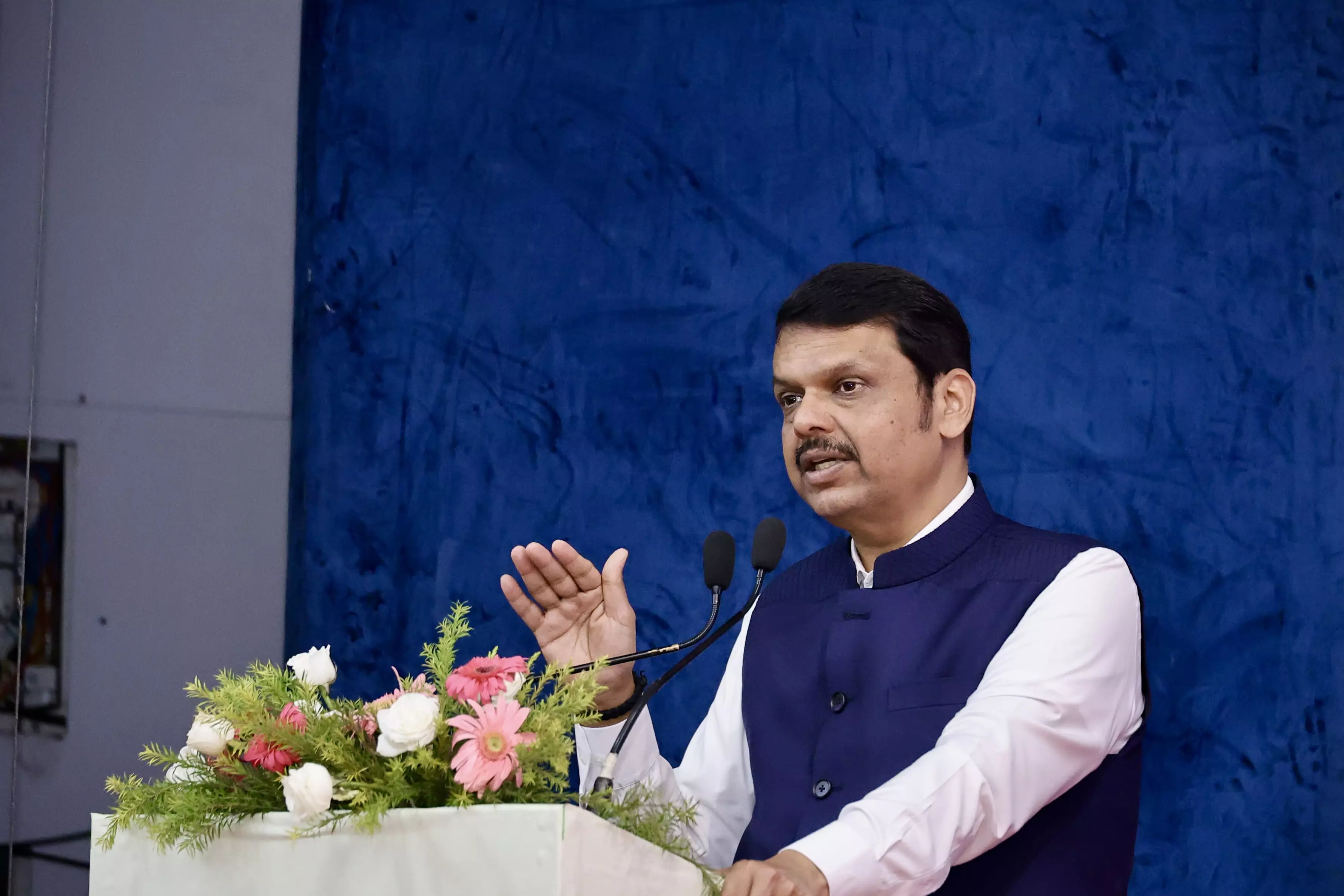Congress, MNS Oppose ‘Hindi Imposition’ in Maharashtra Schools
The government order issued on Tuesday said Hindi would not be ‘compulsory’ but it will be the ‘generally’ taught third language from Class 1 to 5

Mumbai: There is once again an uproar over the alleged compulsion of Hindi in Maharashtra. Opposition parties, including the Congress and Raj Thackeray-led Maharashtra Navnirman Sena, opposed the government order that made Hindi mandatory as a third language in English and Marathi medium schools, unless there are more than 20 students per grade who want to study any other language. Maharashtra chief minister Devendra Fadnavis said there is no compulsion to learn Hindi.
The government order issued on Tuesday said Hindi would not be ‘compulsory’ but it will be the ‘generally’ taught third language from Class 1 to 5. The order said schools can opt out of teaching Hindi if 20 students from each standard wish to learn some other language. “Those who wish to learn any other language as an option to Hindi, should meet the expectation of 20 students from each standard in a school. In such a situation, a teacher for that particular language will be made available or the language will be taught online,” the order said.
Marathi remains a compulsory subject for all school students in the state. However, opposition parties and language activists have opposed the move arguing that it will gradually reduce the importance of Marathi. The Congress and other parties asserted that Maharashtra should not adopt the three language policy, which aligns with the National Education Policy (NEP) 2020, and only Marathi and English should be taught in primary schools.
In Maharashtra, secondary and higher secondary classes always had three languages. However, the state government decided to adopt the three language policy from the first standard from the current academic year. Earlier this year, the state government had to withdraw its order making Hindi language compulsory after receiving a huge backlash.
Congress accused the BJP government of “stabbing Marathi people in the chest”. State Congress president Harshwardhan Sakpal said, “The BJP intends to use Hindi imposition as a means to eradicate Marathi language and culture. This is a deliberate move by the BJP and the RSS, and chief minister Devendra Fadnavis is executing this plan. The Congress strongly opposes this forced imposition of Hindi and will not allow it under any circumstances in the state.”
Demanding that the earlier two-language formula of English and Marathi should be continued, MNS chief Raj Thackeray said his party will defend any school that refuses to teach Hindi. “The government will be responsible for the consequences. If it thinks this is a challenge from us, so be it,” he said.
Mr. Thackeray claimed that a lobby of north Indian IAS officers is advocating for Hindi to be imposed in Maharashtra’s education system. “Hindi is not the national language of India but rather the language of a specific region. Why should Marathi children be forced to learn Hindi from the first standard? We are not against Hindi, but we will not accept its imposition. If the government is trying to divide people based on language, then they must stop immediately,” he said.
“Hindi was always an optional language from higher grades in school. Those who wish to learn the language always did so. Why impose it on small children?” the MNS chief added.
The MNS and Congress leaders asked why Hindi has not been made compulsory in schools in Gujarat. Interestingly, Hindi along with Gujarati is the official state language of Gujarat.
However, chief minister Devendra Fadnavis denied that the government is trying to impose Hindi and pointed out that Marathi continues to be the compulsory language in all schools. “We have removed the requirement to make Hindi compulsory and allowed students to choose any Indian language if there are at least 20 students interested. Online classes will be available for these languages. This should be seen as an opportunity to learn Indian languages. Marathi will remain a compulsory language. Raj Thackeray is advocating for a two-language policy, but the NEP’s three-language policy is a National Policy,” he said.

